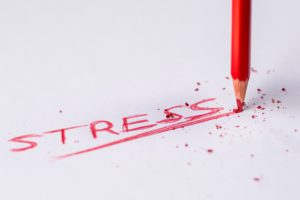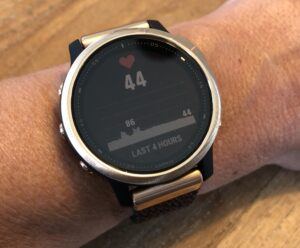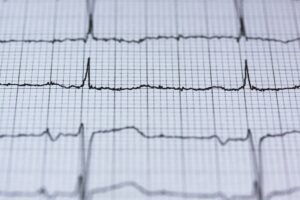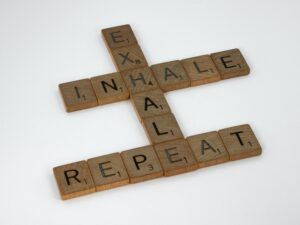An adequate balance between stress (from training and competition load, and other life demands) and recovery is essential for athletes to improve performance and avoid injury. If you allow your body enough rest it will recharge the batteries. You’ll regain more energy, which will help you rise above your old fitness level. If recovery was too long, the level decreases again.
 Stress
Stress
Running and exercise can help relieve mental and emotional stress and clear your mind after a busy day. But the exercise itself is also a physical stressor. If you’re not careful, “more” can lead to injury and illness. So in terms of physical demand, we still need to help our bodies recover from the stress we experience.
 Active Recovery
Active Recovery
Recovery doesn’t mean you can’t move at all. In fact, it is good to move your muscles, as long as it isn’t all too much! Muscle movement ensures greater blood circulation throughout the body. The blood flow ensures the supply of rebuilding material to damaged cells and also the removal of waste products that remain in the muscles after training. Active recovery can be any low-impact movement. Instead of your regular run training, you could choose yoga, go for a swim or take a walk in the park. Keep your heart rate low.
 Duration of physical recovery
Duration of physical recovery
The duration of optimal recovery varies. Sometimes you recover faster, but on a very busy day, your recovery may need more time. How well you’ll recover (and how much extra recovery you might need) depends on how much total stress you’ve had.
It will also depend on the training intensity. After a training cycle of several weeks (for example when preparing for a race), a recovery week might be needed. Top athletes even take a month off after the race season.
Tissue repair
During physical exercise, the body experiences micro-damage to tissue. A muscle needs anywhere from 24 to 48 hours to repair and rebuild, and working it again too soon simply leads to tissue breakdown instead of building.
 Body signals to check if recovery time was enough
Body signals to check if recovery time was enough
There are three ways to find out whether we have recovered well (or not yet).
- How do I feel 36 hours after my last workout? Energized, or tired and maybe sore?
- Craving for sweets
- Does my sweat smell like ammonia?
- What is my heart rate at rest?
 The 36-hours energy check
The 36-hours energy check
Regularly checking how you feel in terms of energy levels will guide you to a better-balanced rhythm of training & rest.
Approximately 36 hours of rest in between two moderate runs are usually enough for your body to recover. To be sure you’re ready for the next run, you can simply check what your body feels like after 36 hours. If you notice an energy boost after a day and a half, then you’re good. If you feel tired and you are yawning, then your body needs some extra time. Muscle pain is a clear signal that you have not recovered yet. Some extra hours of sleep may be a better ‘workout’ than doing another training.
 Craving for sweets
Craving for sweets
Another body signal is if you sense more than usual cravings for sugar. If this is the case, you’d better refuel yourself with a snack or meal that contains healthy fats and extra proteins. For today it’s also better to take some extra rest and go to bed early.
 Smelling Ammonia?
Smelling Ammonia?
When you’re running and you notice your sweat smells like ammonia, it’s a signal of training too hard. Your body hasn’t recovered well enough for this intensity level. If that’s the case, you are not only using fats and sugars as energy sources but also proteins. You’re ‘burning your muscles’, and that’s not what you want. You’d better slow down or even stop this training. Take some extra time to recover. Refuel well and go to bed early tonight.
 Resting Heart Rate
Resting Heart Rate
Keeping track of your Resting Heart Rate on a daily basis will provide you with better insights into your recovery.
You can use a sports watch with a heart rate monitor, and write down your heart rate each morning just before getting out of bed. If you notice that your resting heart rate is dropping over time, then you’ve been training productively. Your fitness level is improving, you have regained energy and you’ve recovered well.
If your resting heart rate rises over time, it indicates restlessness. If, while at rest, your heart rate is five heartbeats higher than usual, you’d better take an extra break. You might have trained too much or too intensively and need some extra recovery time. If you neglect these signals, you’ll probably do yourself more harm than good.
 Training stimulus overload
Training stimulus overload
There are three stimuli that can enhance our fitness: training frequency, intensity, and duration. Training overload occurs when runners train too often, too fast, and too long. When the training stimulus is too strong, there may be a risk of injury. When running, you can only make progress when training stimuli and recovery are in balance. Training less, slower or shorter is sometimes more effective. Gradually increase one of the enhancers in a period of three weeks and not two or three at the same time. So, for example, don’t increase distance AND pace at the same time. Build up step-by-step to prevent injury.
 Mental recharge
Mental recharge
Not only do we need time to recover physically, but we need also need to recharge our mental batteries! After a few consecutive weeks of training, we may notice a motivational dip. It may be a good idea to allow ourselves some time off from running. Changing our workout routines for a week may already be helpful to get back in the mood for running. Play soccer or tennis, go for a swim, do a bit of cycling, or do a few gym workouts. Just do something different.
 Tips for better and Faster Recovery
Tips for better and Faster Recovery
- Relaxing Breathing Exercise: If you perform a 2-to-3-minute breathing exercise straight after your workout or run, it will lower your heart rate. This will help calm down your body again. If you’ll repeat the same exercise after getting into bed at night, it will also enhance a better and deeper sleep, which will support recovery and increase your energy levels for the following day. Please find instructions for this breathing exercise at the bottom of this post.
- Cool-down & Stretch: Include runners’ stretches or runners’ yoga in your cool-down routines. It will support optimal recovery.

- Refuel: Eating a varied diet is certainly beneficial to cell repair and growth. A protein-rich post-workout snack will support the recovery of the muscles. Many endurance runners will find protein-infused chocolate milk to be a great quick recovery drink immediately following a session, or their own homemade version of something similar with whey protein powder added to 500ml milk.
- Rehydrate: during your run, you’ve lost a lot of fluids due to sweating and respiration. Runners should be aiming to replace their fluid losses from exercise. Our recommendation is to add electrolytes to the water you’re consuming throughout the day and during your workouts to maintain optimal electrolyte balance.

- Sleep: good quality sleep will also improve recovery. min 8 hours. Extra sleep or an extra afternoon nap ensures the production of a growth hormone that helps muscles to recover. Not only does sleep impact the body’s ability to recover, but it also has a beneficial effect on our overall mental and physical health.
- Massage: to release tight and sore muscles visiting a massage therapist can be a great relief. But self-massage workers well too. Many athletes use foam rollers as an affordable option and they are easy to use.
- Hot bath or shower: a post-workout hot shower always feels lovely to rinse off the sweat and feel renewed and relaxed again. Especially in wintertime after a run in cold or rainy weather. It will make you sleep like a baby.

BREATHING EXERCISE TO
RECOVER-RELAX-SLEEP
Find a place where you can
focus on your breathing.
Are you still panting from a
run and breathing through your
mouth right now? Then first
lower the current breathing
frequency by extending the
exhalations.
As soon as you’re able to,
change to breathing in and
out through your nose.
You don’t need to extend
the exhalations anymore.
Breathing pattern
nasal inhalation
nasal exhalation
pause
Instructions
1. Normally inhale through
your nose (not too deep)
2. Normally exhale through
your nose
3. Pause for a few seconds
Don’t force it, the pauses
don’t need to be as long
as possible.
Just 2-3 seconds, until
you perceive the first
need to inhale again.
When and for how long?
* Directly after your run
For better recovery
2-3 minutes
* Just before sleeping
For better and deeper sleep
10 minutes
* Straight after waking up
Relaxed start of the day
10 minutes
* When feeling stressed
To calm down
2-5 minutes
Where?
Anywhere!
Body positioning
You can do this breathing
exercise while standing up
straight,seated, or laying
down.
Although not needed, you
may close your eyes,place
one hand on your chest
and the other on your belly,
to feel the movements of
the breathing.
Result
Physical, mental, and
emotional relaxation,
lowering heart rate.
If you like this post, please give it a thumbs up and share it. Thank you! If you have any questions, don’t hesitate to contact me by E-MAIL or leave your comment below.
1



